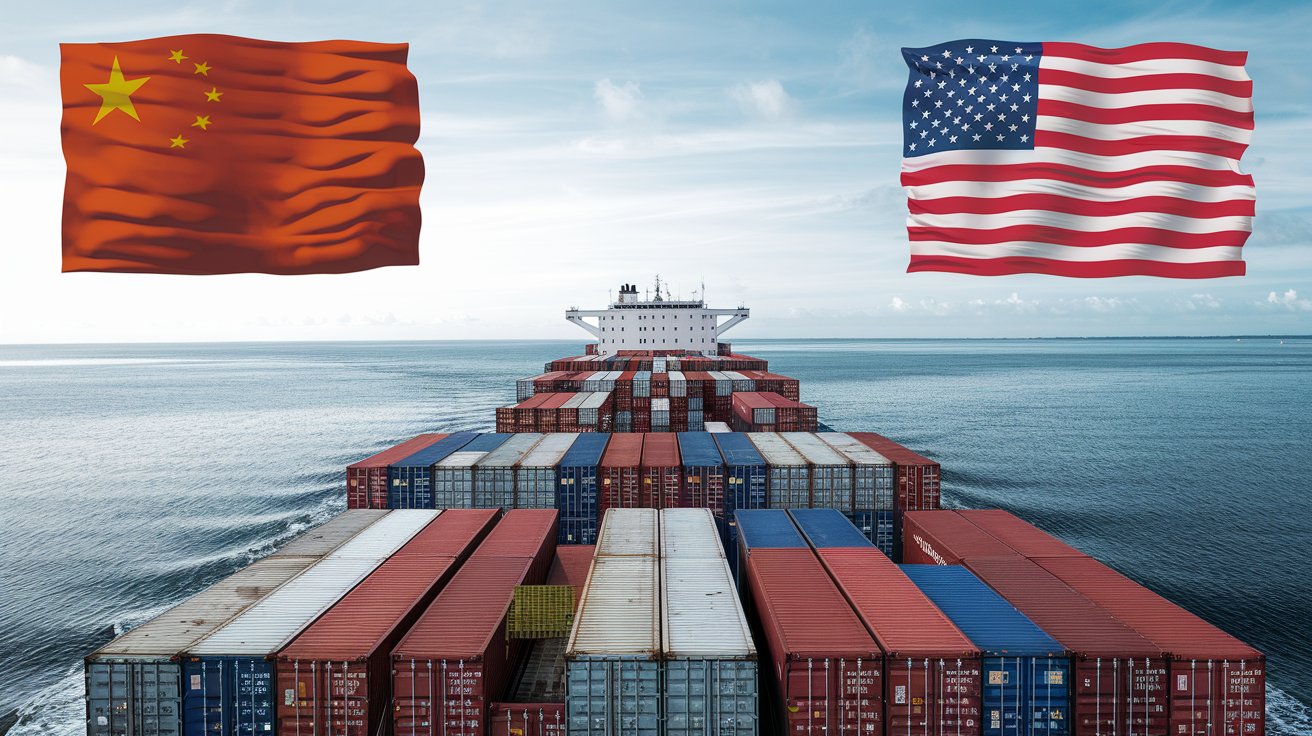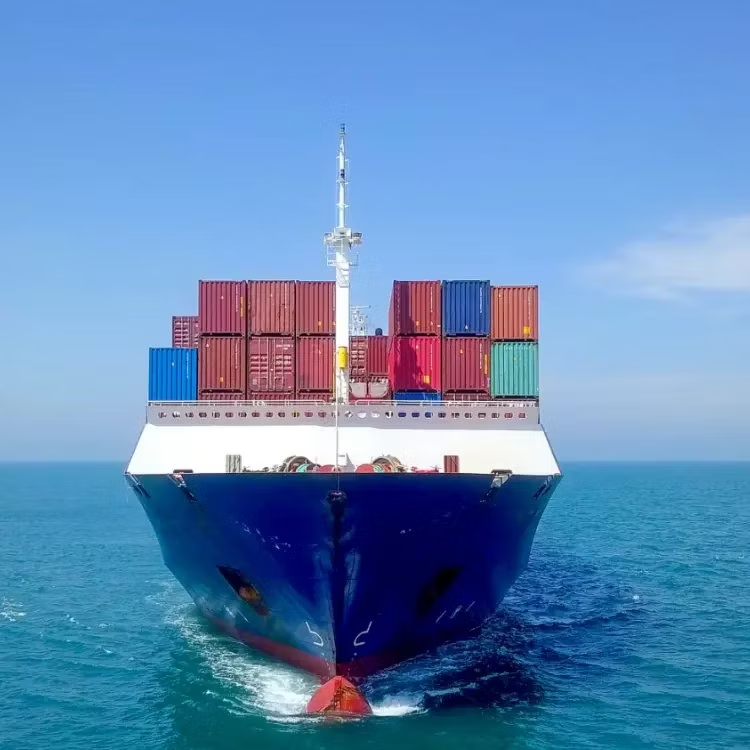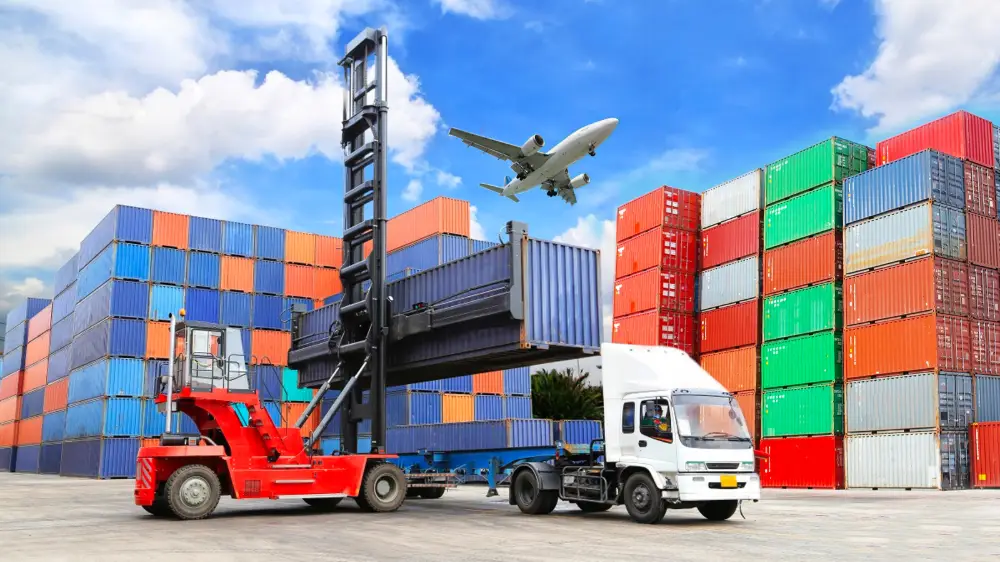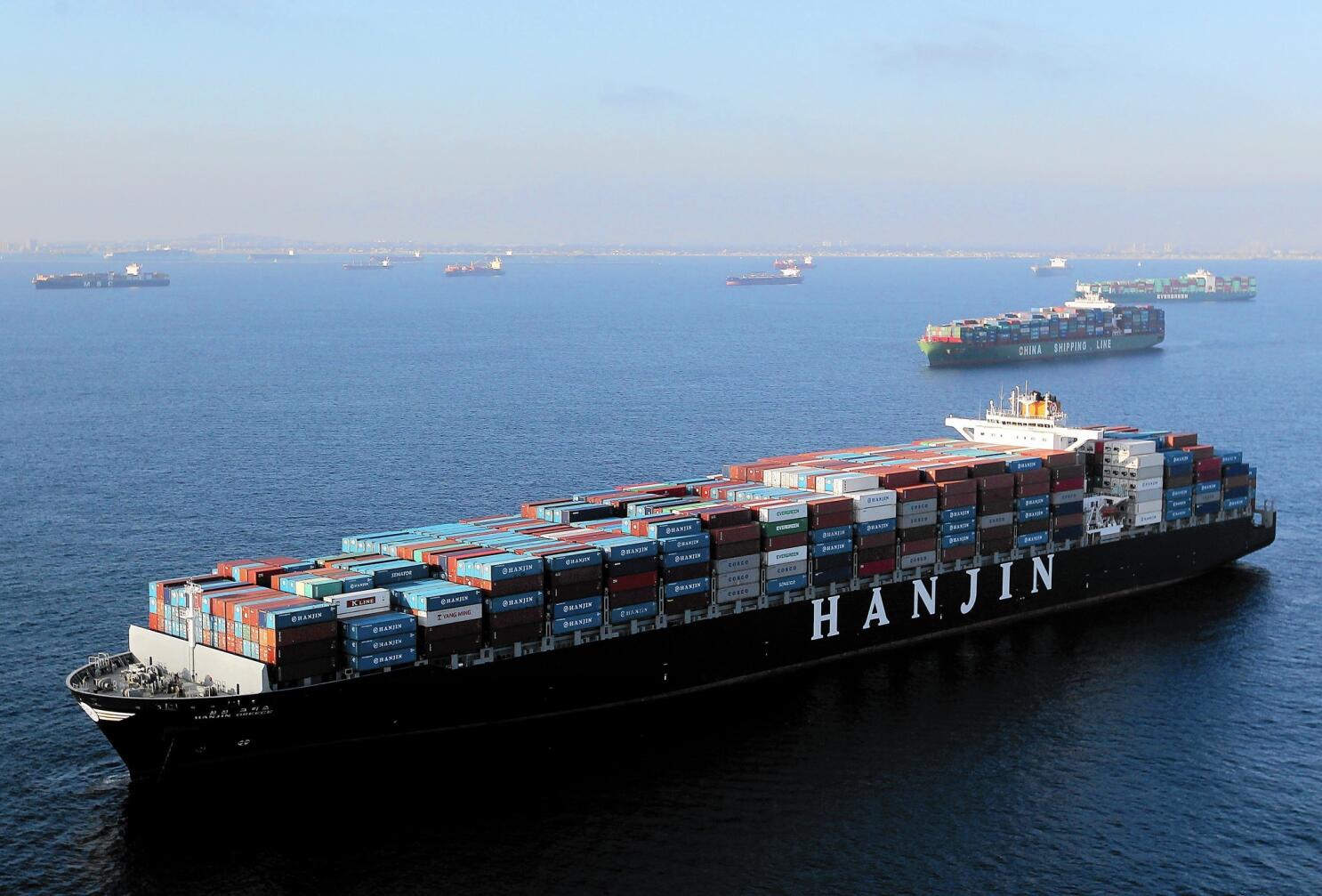Navigating the complexities of shipping goods from China to Greece can be daunting, especially for businesses looking to optimize costs while ensuring timely deliveries. With various shipping methods available, each presenting its own advantages and challenges, understanding the nuances of logistics is crucial. This ultimate guide provides a comprehensive overview of the best shipping options, key factors influencing costs, effective strategies for researching shipping companies, and practical tips for reducing expenses. Whether you are new to importing or seeking to streamline your current processes, this guide will equip you with the insights needed to make informed shipping decisions.
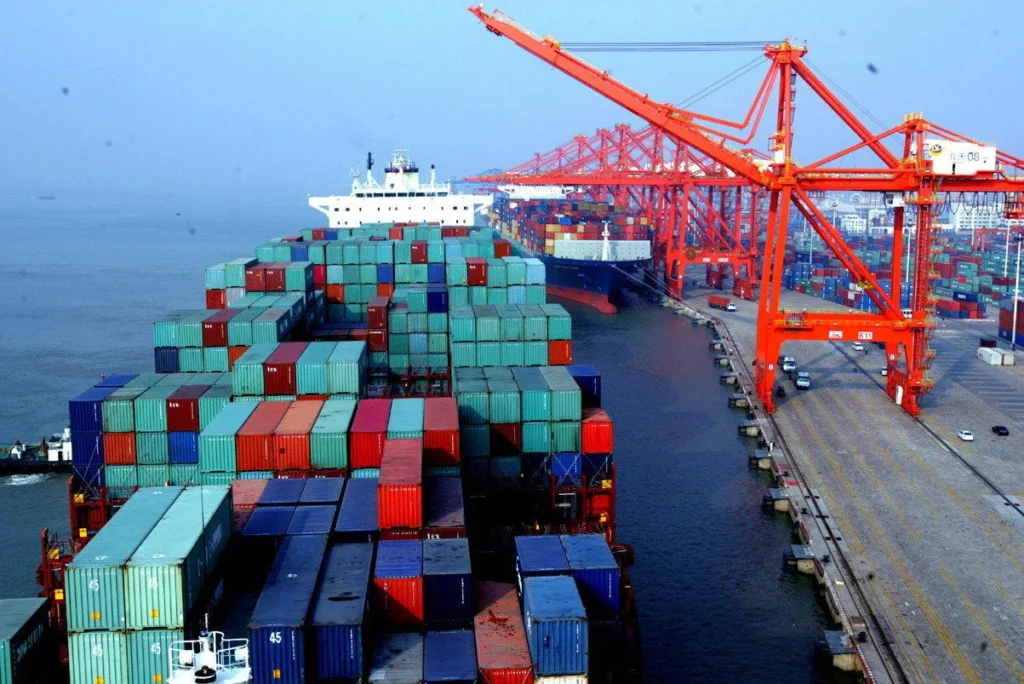
Understanding Shipping Options from China to Greece
Overview of Shipping Methods Available
Shipping from China to Greece can be accomplished through several methods, each offering distinct advantages and disadvantages. The primary shipping methods include Air Freight, Sea Freight, and a hybrid approach combining both.
-
Air Freight:
This method is characterized by its quick transit times, typically ranging from 3 to 7 days. Ideal for high-value or time-sensitive goods, air freight significantly reduces the time spent in transit. However, it often comes with higher costs compared to sea freight. Air freight is best suited for smaller shipments, generally under 100 kg, due to cost considerations. -
Sea Freight:
Sea freight is the most economical choice for larger shipments. Transit times can vary from 20 to 40 days depending on the shipping route and service chosen. This method is well-suited for bulk goods and heavy items, making it a popular alternative for businesses with larger shipments. While slower, sea freight offers significant savings, particularly for non-urgent cargo. -
Express Shipping:
Express services, which combine air freight with expedited handling, are also available. These services are designed for urgent deliveries, offering faster transit times than standard air freight. However, these expedited options can be more expensive and should be used judiciously.
Comparison of Air Freight and Sea Freight
To make informed decisions, businesses should weigh the pros and cons of Air Freight and Sea Freight. The following table provides a comprehensive comparison of these two shipping methods:
| Criteria | Air Freight | Sea Freight |
|---|---|---|
| Transit Time | 3 to 7 days | 20 to 40 days |
| Cost | Higher cost per kg | Lower cost per kg |
| Best For | Urgent, high-value, or smaller shipments | Bulk goods, heavy items, and non-urgent cargo |
| Tracking | Real-time tracking often available | Tracking is available but may not be as precise |
| Environmental Impact | Higher carbon footprint compared to sea freight | Lower carbon footprint per ton of goods shipped |
By carefully considering these factors, importers can select the shipping method that aligns with their specific needs.
Read More:
- Shipping From China To Netherlands
- Shipping From China To Spain
- Shipping From China To Germany
- Shipping From China To France
- Shipping From China to Italy
- Shipping From China To Poland
- Shipping From China to United Kingdom
Key Factors Influencing Shipping Costs
The cost of shipping goods from China to Greece is influenced by several factors. Understanding these costs helps businesses budget more effectively and anticipate additional expenses.
Weight and Dimensions of Your Shipment
The weight and dimensions of your shipment are critical in determining shipping costs. Carriers typically charge based on the greater of the actual weight or volumetric weight (dimensional weight). For air freight, the formula for calculating volumetric weight is often:

For sea freight, while weight is still a factor, shipping lines often provide more favorable rates for larger volumes. It is important to provide accurate measurements to avoid unexpected fees.
Distance and Delivery Time Considerations
The distance between the point of origin and the destination, along with the desired delivery time, plays a significant role in determining shipping costs. Generally, longer distances equate to higher shipping fees. Additionally, if expedited shipping is required, businesses should expect to pay a premium for faster service.
Customs Duties and Taxes in Greece
Importing goods into Greece also involves adhering to local customs regulations, which can include customs duties and taxes. Greece, as part of the European Union, applies the Common Customs Tariff, which means that the duties depend on the type of goods being imported. Importers should be aware of the following:
- Customs Duties: These are calculated based on the total value of the goods, including freight and insurance costs. The duty rates can vary significantly based on product classification.
- Value Added Tax (VAT): Greece imposes a VAT on imported goods at a standard rate of 24%. Importers must account for this additional cost in their overall shipping budget.
By understanding these key factors, businesses can better navigate the complexities of importing goods from China to Greece. Dantful International Logistics can assist in providing tailored solutions to facilitate seamless shipping experiences and ensure compliance with local regulations. Our comprehensive services include customs clearance, warehouse services, and insurance services, making us a highly professional, cost-effective, and high-quality, one-stop international logistics service provider for global traders.
How to Research Shipping Companies Effectively
Navigating the shipping landscape can be challenging, especially when selecting the right freight forwarding company for your specific needs. Conducting thorough research is essential for ensuring a smooth import process. Here’s how to research shipping companies effectively.
Utilizing Online Freight Marketplaces
Online freight marketplaces have revolutionized how businesses connect with shipping companies. These platforms allow importers to compare various shipping options, rates, and services. Key features of these marketplaces include:
-
Real-Time Quotes: Users can obtain instant quotes from multiple freight forwarders, helping them make informed decisions based on budget constraints.
-
Service Comparison: Freight marketplaces allow users to filter results based on specific criteria such as shipping methods (air, sea, or land), delivery timelines, and additional services like insurance or customs clearance.
-
Transparent Pricing: Detailed pricing structures help importers understand what they are paying for, breaking down costs into freight charges, surcharges, and any potential customs duties.
Some popular freight marketplaces include Flexport, Freightos, and ShipBob. Utilizing these platforms can streamline the research process, enabling businesses to identify shipping companies that meet their criteria effectively.
Reading Customer Reviews and Testimonials
Customer reviews and testimonials provide invaluable insights into the reliability and quality of shipping companies. Here’s how to leverage these resources:
-
Research Platforms: Websites like Trustpilot, Google Reviews, and social media platforms can yield a wealth of customer experiences related to various shipping companies. Look for both positive and negative reviews to get a balanced perspective.
-
Industry-Specific Feedback: Seek out reviews from other businesses in your industry that have similar shipping needs. Industry-specific forums, blogs, and LinkedIn groups can be excellent sources of targeted feedback.
-
Analyze Patterns: Identify recurring themes in reviews, such as issues with delays, customer service interactions, and overall satisfaction. Consistent feedback can shed light on a company’s strengths and weaknesses.
Comparing Shipping Companies
Comparing shipping companies is a critical step in ensuring you choose the right partner. Consider the following criteria to facilitate a thorough evaluation:
Criteria for Comparison
-
Cost:
Assess the overall pricing structure, including base rates and any additional fees. Ensure you understand the breakdown of costs associated with shipping your goods, including customs duties and insurance options. -
Reliability and Reputation:
Investigate the shipping company’s history and reputation in the industry. Look for ratings from independent organizations and check if the company has any unresolved complaints or legal issues. -
Transit Time:
Compare estimated transit times for your specific shipping needs. Different shipping methods (air vs. sea) will offer varied timelines, so align these with your delivery expectations. -
Customer Service:
Evaluate the level of customer service offered by each shipping company. Consider how accessible and responsive their support team is and whether they provide assistance throughout the shipping process, including tracking updates and handling any issues that arise.
Top Shipping Companies
Several leading shipping companies have established themselves as industry leaders in freight forwarding. Below is an overview of some of the top companies along with a comparative table highlighting key metrics.
Overview of Leading Shipping Companies
-
Dantful International Logistics: A highly professional, cost-effective, and high-quality one-stop international logistics service provider specializing in shipping from China to various global destinations.
-
DHL: Renowned for its extensive global reach and reliable express shipping services, DHL offers a variety of logistics solutions tailored to businesses of all sizes.
-
FedEx: Known for its express delivery services, FedEx provides flexible shipping options, including same-day and overnight shipping, suitable for time-sensitive shipments.
-
UPS: A well-established player in the logistics field, UPS offers comprehensive shipping solutions, including air freight, sea freight, and land transportation.
| Company | Cost | Reliability | Transit Time | Customer Service |
|---|---|---|---|---|
| Dantful | Competitive | High | 3-40 days | Responsive |
| DHL | Moderate | Very High | 1-7 days | Excellent |
| FedEx | Higher | High | 1-5 days | Very Good |
| UPS | Moderate | High | 1-7 days | Good |
Each of these companies brings unique strengths to the table, making it essential to assess your specific shipping requirements to determine the best fit.
By following these strategies for researching and comparing shipping companies, businesses can make informed decisions that enhance their logistics operations. Dantful International Logistics stands out in providing tailored solutions and exceptional customer service, ensuring a seamless shipping experience from China to Greece and beyond.
Tips for Reducing Shipping Costs
Shipping costs can significantly impact a business’s bottom line, especially for companies that rely on importing goods from China. Here are effective strategies for reducing these expenses while ensuring efficient logistics operations.
Bulk Shipping
Bulk shipping is one of the most effective methods for minimizing shipping costs. By consolidating shipments, businesses can take advantage of lower rates per unit. Here’s how bulk shipping can save costs:
-
Economies of Scale: Shipping larger quantities at once generally results in lower per-unit shipping costs. Freight forwarders often provide discounted rates for bulk shipments due to the reduced handling and transportation costs associated with fewer trips.
-
Container Utilization: When shipping by sea, utilizing containers effectively can further decrease shipping expenses. For instance, a full container load (FCL) typically costs less per unit compared to less-than-container load (LCL) shipping, as LCL incurs additional fees for handling and consolidation.
-
Long-term Contracts: Businesses can negotiate long-term agreements with freight forwarders for bulk shipping, securing lower rates and guaranteed capacity. This approach is particularly beneficial for companies with predictable shipping needs.
Flexible Shipping Dates
Being flexible with shipping dates allows businesses to capitalize on varying rates based on demand. Here are ways flexibility can lead to cost savings:
-
Choosing Off-Peak Shipping: Rates for air and sea freight can fluctuate significantly based on the time of year and demand. Shipping during off-peak seasons can result in substantial savings. For example, avoiding peak holiday shipping seasons can lead to lower costs.
-
Adjusting Delivery Deadlines: If a shipment is not urgently needed, consider extending delivery timelines. Freight forwarders may offer reduced rates for deliveries that allow for longer transit times, which can be particularly beneficial when shipping via sea freight.
-
Monitoring Market Trends: Keeping an eye on market trends and seasonal fluctuations can help businesses plan shipments strategically. Utilizing freight rate calculators and subscribing to industry updates can provide insights into when to schedule shipments for the best rates.
Negotiating with Shipping Companies
Effective negotiation with shipping companies can lead to more favorable terms and reduced costs. Here are some strategies for successful negotiations:
-
Understanding Market Rates: Equip yourself with knowledge of current market rates and pricing structures. Researching industry standards and utilizing online freight marketplaces can provide insights into competitive pricing.
-
Presenting Shipping Volume: When negotiating, highlight your shipping volume and potential for future business. Companies are often willing to provide better rates to secure long-term clients, especially if you can demonstrate consistent shipping needs.
-
Requesting Multiple Quotes: Solicit quotes from multiple freight forwarders and use these to leverage better deals. Presenting competing offers can encourage companies to match or beat lower rates offered by others.
-
Discussing Additional Services: Inquire about any available discounts on ancillary services, such as insurance services, customs clearance, or warehouse services. Bundling services may provide additional savings.
By implementing these strategies to reduce shipping costs, businesses can optimize their logistics operations and improve profitability. The effectiveness of these methods relies on careful planning and proactive management of shipping practices. Dantful International Logistics is well-equipped to assist businesses in achieving cost-effective shipping solutions while providing comprehensive support throughout the entire import process.
Dantful International Logistics Services:
- Dantful Ocean Freight Services
- Air Freight From China
- Amazon FBA Freight Forwarding
- WAREHOUSE Services
- One-Stop Customs Clearance Solution
- Cargo Insurance Services in China
- DDP Shipping Services By Dantful Logistics
- Out of Gauge Cargo Transportation Shipping Services

Young Chiu is a seasoned logistics expert with over 15 years of experience in international freight forwarding and supply chain management. As CEO of Dantful International Logistics, Young is dedicated to providing valuable insights and practical advice to businesses navigating the complexities of global shipping.











